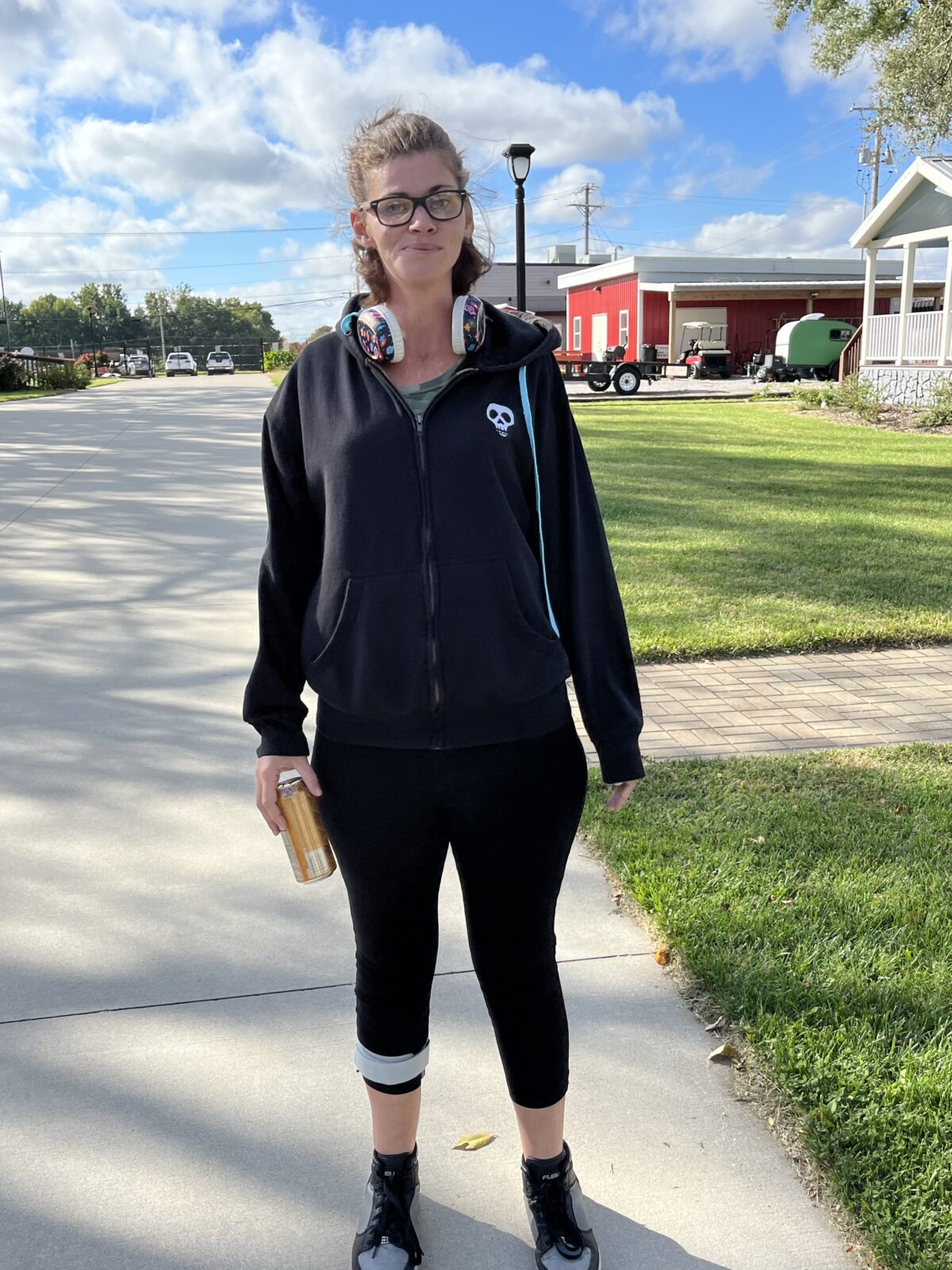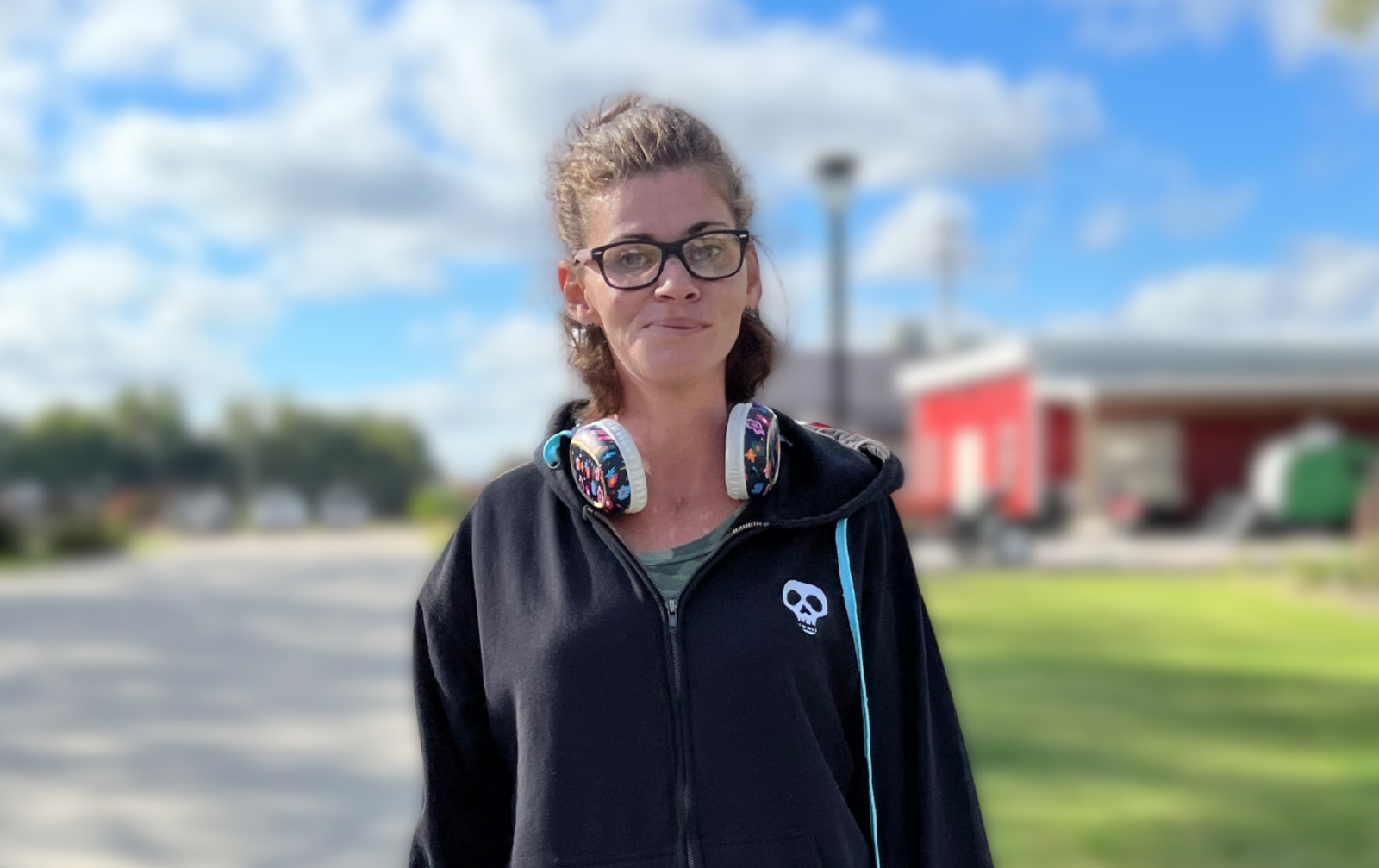This is the second in a series. Read part one here.
Last week I wrote about arriving on October 12 in Eden Village, a tiny home community for the recently homeless in Springfield, Missouri. My plan was to live for ten days there and at a homeless shelter in Joplin, Missouri.
My experience during four days last July at the Orange County Rescue Mission (OCRM) colored my expectations concerning Eden Village. I’ve visited Skid Row in Los Angeles, where many sojourners sit or lie around all day with no expectations regarding behavior. OCRM, 34 miles south of Skid Row, is the opposite. Almost every hour is scheduled. Everyone eats together in the dining hall and goes to Bible studies, a church service, and jobs or job preparedness classes. Residents line up to receive their exact amount of doctor-prescribed drugs.
Eden Village is also the handiwork of evangelical Christians, so I expected something similar to OCRM. Was I wrong! The major Eden rules are few: Pay $325 per month rent (usually from government disability payments). Don’t consume anything illegal—alcohol and marijuana (now legal in Missouri) are allowed. Don’t fight with neighbors. The age range is also different. Most at OCRM are under 40, but at Eden Village only two were under 40: average age is 56, with half the residents in their sixties and often focused on their pasts rather than their futures.
I initially thought I’d meet most of the 25 Eden residents by hanging around the community room. Surprise: Eden Village doesn’t have many community activities. Haircuts on Tuesdays. Wednesday morning coffee/conversation hour. A church group brings dinner on the last Thursday of the month. Bingo on the third Saturday of the month.
Some of Eden’s pre-Covid classes, often poorly attended, did not return post-Covid. On shelves adjacent to the community room are 400 or so DVDs with titles like Confessions of a Shopaholic and American Gangster, but they seem largely for individual viewing: No community movie night. The community room was empty ninety percent of the time I peeked in.
So I set out to meet my 25 neighbors as they walked by my tiny house, 5E, or sat on their front porches: 15 on the west side of the street, 16 on the east side. All I knew about them is that they had to be recently homeless in Springfield for at least a year, or to have had four episodes of homelessness within the last three years. They also needed to be officially diagnosed with a disability (usually mental rather than physical).

Mirenda Barrows — a thin 6’2” — walked by, wearing an ankle brace. I introduced myself and showed my reporter’s notebook. She said I should spell her name Mirenda, not Miranda, and invited me to sit on her 6W porch. She limped to one of the chairs. I sat in the other and asked her how she grew up. She said she did not know if her parents were married. She did know that when she was three her two older brothers, jumping from bed to bed, challenged her to do the same. She demurred, but a brother pushed her off the top bunk.
The result of this first lesson with guys: a broken leg. After a hospital stay Mirenda went directly into foster care. She jumped from foster home to foster home in a succession of Missouri cities and towns. She was sometimes back with her mom, who had alcohol and drug problems. She thought her older brother was the lucky one because a family adopted him — but he died of a drug overdose.
At age ten, Mirenda said, her mom took her for a diagnosis — bipolar with PTSD — and started receiving Mirenda’s monthly disability check of $800 or so. In and often out of schools, Mirenda got her GED at age 17 and aged out of foster care at 18. A letter in the mail alerted her to where the disability checks were going. She began receiving governmental cash.
Life became darker. Unmarried, she had in 2011 a son who went to live with his dad until, Mirenda said, the dad was arrested for child molestation. Her son is now in foster care: “I don’t know where.” Mirenda struggled with depression, became a meth addict, and was homeless for two years. She lived sometimes in the woods, where others showed her how not to freeze to death. And then she didn’t want to tell me more. “Maybe later,” she said.

